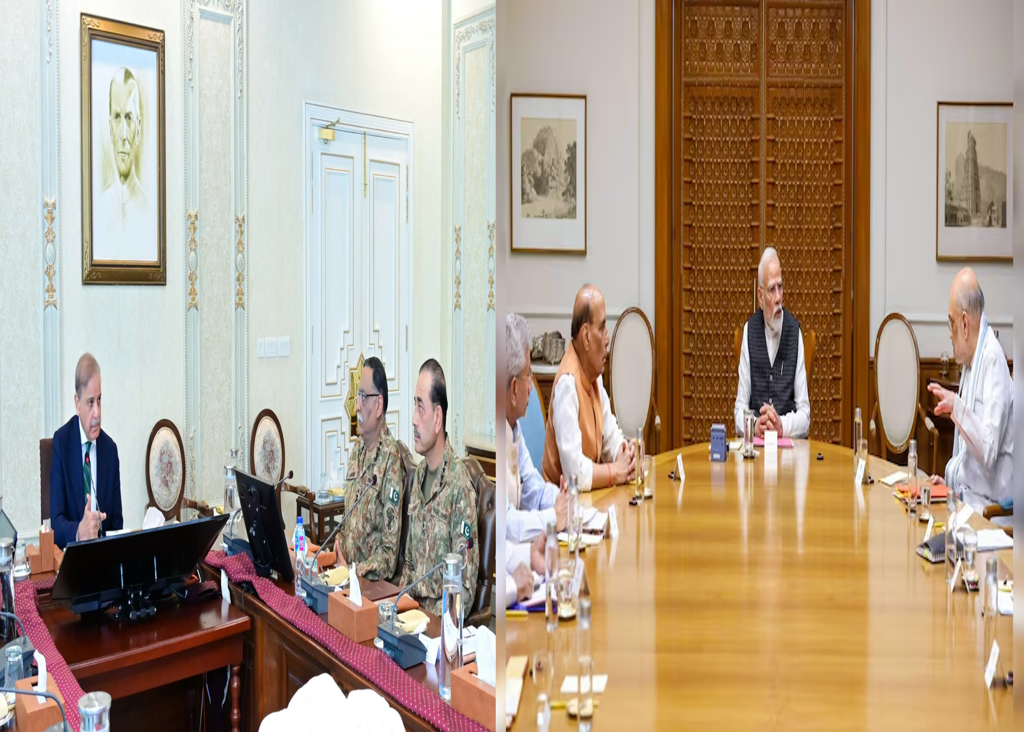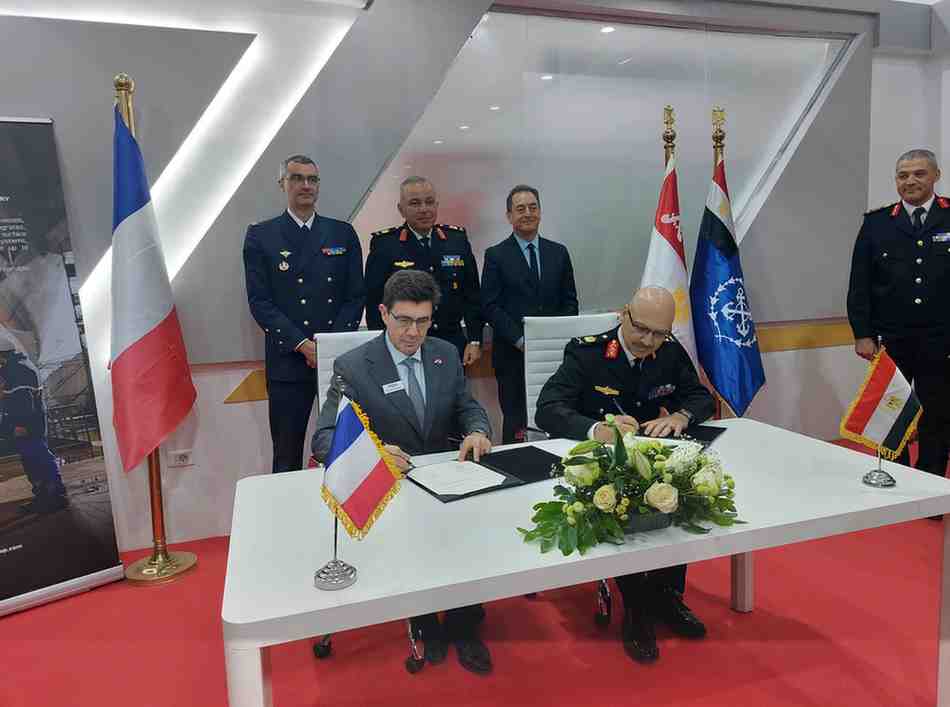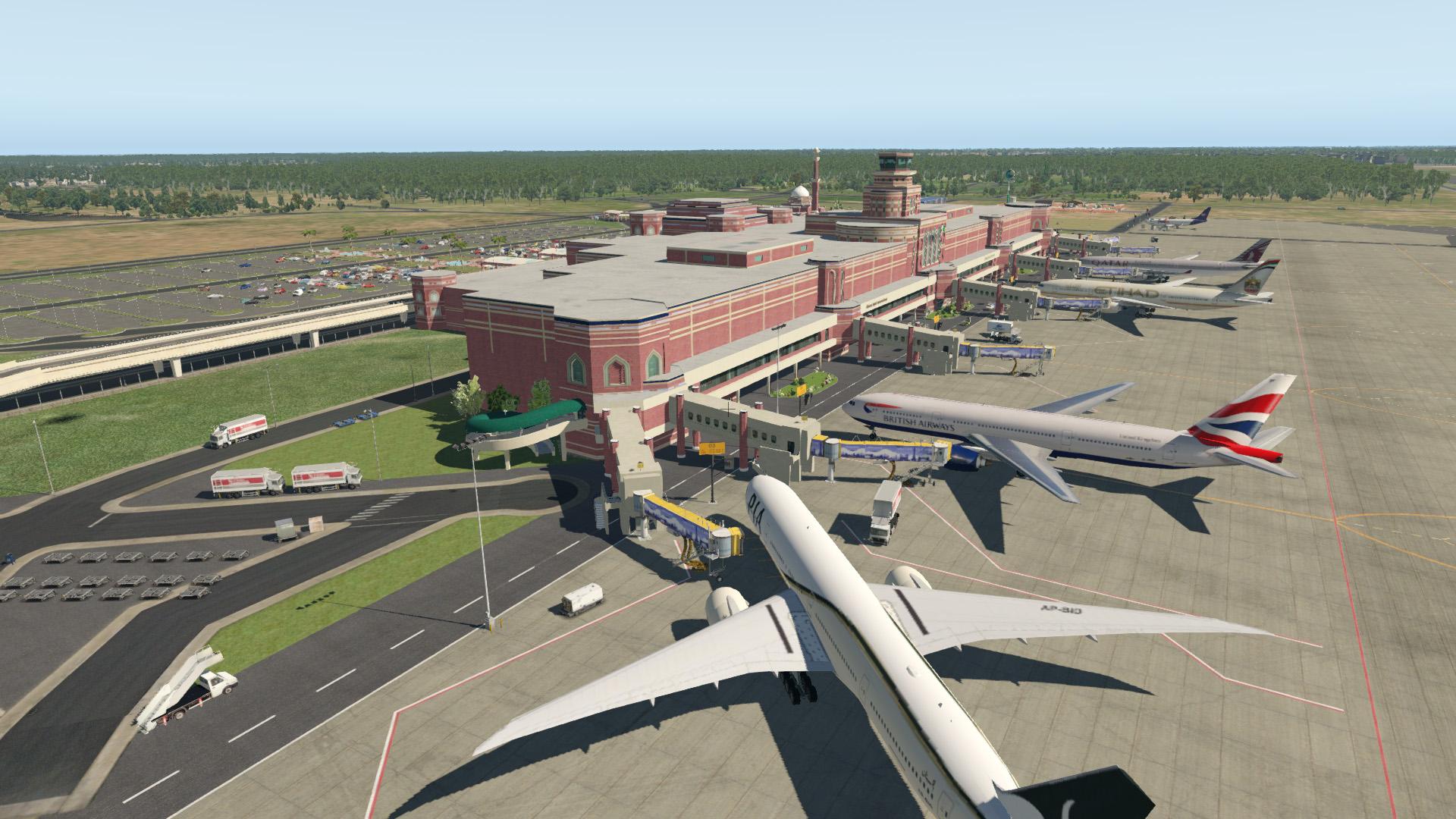The Pahalgam crisis between India and Pakistan falls under the interstate (systemic) level of analysis, as it centers on the strategic interactions and diplomatic responses between two sovereign states. Through the significant strategic decisions by National Security Councils in Pakistan and India, NSC’s emergence marked toward broader security decisions. In the peaceful or hostile environment living in a world where organizations, committees and councils are an integral part of human political society. Observing the global political trend, during times of peace and conflict, a National Security Adviser plays a key and fundamental role as a top-tier advisor to the government on national and international affairs. Analyzing at the recent Pahalgam crisis trigged four-days limited conflict or serious security crisis, marked as intense escalation in recent South Asia history. On the night of May 6-7, 2025 India launched airstrikes through Operation Sandoor on Pakistan, Pakistan shot down up to five Indian jets. Pakistan called for independent inquiry for Pahalgam attacks, later with the diplomatic offensive efforts in major capitals of the world, and to maintain deterrence finally on May 10, 2025 launched and respond through tri-services jointness Operation Bunyan ul Marsoos (Iron Wall) targeted only calculated military sites at India. Retaliation by Pakistan under Article 51 of the UN Charter, and calls the international community to objectively condemn India’s hegemonic actions to maintain peace and regional stability in South Asia.
On both sides, politicians as parliamentarians hold sessions in National Assembly (Pakistan) and Lok Sabha (India) for the legislative processes, as reflecting public representation in the structure of power and governance in national politics. Conflicts do not usually start with the latest act of violence, they often develop over time due to land disputes, loss of cultural identity, broken agreements and political disappointment. As of now, with third party on 10th May intervention from the U.S. and the international community, there is fragile ceasefire or peace established between India and Pakistan, and U.S. has expressed a desire to boost trade with both countries. In the contemporary political world, national security councils (NSCs) through thoughtful discussions, are high-level advisory bodies for supporting government’s strategic decision-making as leadership meetings are conducted for responsible discussions and evaluate the internal and external threats. NSC type councils play a crucial role in shaping a country’s defense posture, strategic decisions and respond to ease to the national and international threats. While the exact structure and power of these councils modify globally, they all serve as the central forum for the top leadership to knowing the security-related matters.
Over the several years, in Pakistan initially the idea of national security council was established on March 25, 1969 under the president Yahya Khan and evolve in general Zia military regime. In April 2004 President General Musharraf, through the National Security Council Act led the formation of National Security Council, where at that time leadership envisioned that NSC is not a supra-constitutional body but a consultative forum to promote the harmony in the federation on national security issues constitutionally. The concept of a India’s National Security Council in India started taking shape through discussions in 1988, in line with the development of India’s nuclear and missile program, finally in 1998 Vajpayee administration (BJP) finally created the NSC in November 1998, analyzing security and defense with continuous advice to the government. Presently, India’s NSC is the top advisory body on the national and strategic affairs by reporting directly to the Prime Minister. While the NSC serves as the top decision-making body, the National Security Advisory Board (NSAB) functions as a think tank or advisory forum that support the NSC through research, expert opinion and policy recommendation. Swift military adventurism alone cannot be effectively addressed terrorism, it is equal a social, ideological and political challenge. And true power lies not only in the ability to influence, more but in the capacity to inspire, persuade and heal.
As the Prime Minister head of NSC, “Pakistan’s National Security Council serve as a forum for civil-military leadership consultation on matters of strategic security and defense including the national sovereignty, integrity of state and crisis management. Democratic resistance has been also faced by the National Security Council, civilian governments often viewed the NSC as an establishment dominance in the civilian affairs, therefore it remained inactive or was sidelined during the democratic governments. But again, in the recent previous years, NSC prioritized particularly in 2018-2022 PM Khan government aimed NSC for the institutionalized in national decision making, which resulted in output in form of National Security Policy 2022-2026 expanding the NSC scope from traditional military defense perspective including the climate change, economic and human security. This process increases the coordination between civil and military leadership. Recently in May 2025, in India and Pakistan crisis PM Sharif government at NSC meetings take onboard political and military leadership including Army, Air Force and Navy for the collective decision making to respond to aggression of India on Pakistan soil. And so, India’s attempt to isolate Pakistan not succeeded. The NSC leads national combine efforts in coordinating responses to hybrid and narrative warfare. Instead of celebrity the victory, in streets of Pakistan people are observed the peace and there is humility in public.
The National Security Division (NSD) and National Security Council (NSC) are interlinked in the Pakistan’s security structure, in short NSC work on strategic-security decisions, whereas NSD provides the research, coordination, and policy support to implementation decisions. The National Security Council is embodying the principle of the realism in international relations by focusing on the protecting national interests, state security and state sovereignty through pursued of power and strategic decision-making. Because in the anarchic international system states must reply at their own strengths to ensure to survive. Two states like Pakistan and India when face the crisis (e.g. the Pahalgam attack), the Pakistan’s NSC is activated to evaluate the threats and decided on retaliation, diplomacy and low-scale military conflict. These are the realist behaviors, focusing on rational state action to maintain balance of power and deter the adversaries. Partially the Liberalism applies through the National Security Council in Pakistan and India to manage the conflicts and to maintain peace when NSC decisions promote the dialogue, diplomacy and institutional cooperation means when both states more or less support the confidence building measures and bilateral talks.
The ethical behavior we seen by the states is reflection of the good we can see in in the world. We can observe through the international powers’ intervention like recently U.S announced the ceasefire between India and Pakistan. China’s trade with India exceeding $100 billion, its position as an upper riparian on the Brahmaputra River, most importantly, its relationship of trust with Pakistan, all these factors can contribute positively improving its position in the region. Moreover, they can assist in addressing climate change and water related challenges under the Indus Water Treaty in the broader context Pakistan-India cooperation. Prolong cycle of violence, turmoil and strategic drift jeopardize the regional structural stability. Pahalgam terror incident is not only the cause but the deeper effect of the instability in the South Asia region, articulation of the unresolved Kashmir issue. The incident in Pahalgam has once more drawn international attention to Kashmir. Without addressing the social, political and religious challenges of the poverty and intolerance in India and Pakistan both countries can’t resolve their more than seventy years long conflict. Economic experts have highlighted that one in every four poor people in the world lives either in India or Pakistan, approximately world 27% poverty in these two countries. “Hostility towards Pakistan is the quickest route to national unity in India” – Barak Obama. Now water act as a strategic tool in South Asia, so it made the lower riparian state or downstream country (Pakistan) feel anxious or threatened. Historically Indus Water Treaty acted as a limited confidence building measure between nuclear-armed India and Pakistan; its suspension or abeyance (temporary suspension) by India extremely reduce the trust and crisis-management mechanism. Religious fundamentalism and hyper-nationalism, combined with hateful or harmful rhetoric, are problematic for any nation when using such narrative against a rival or ally nation. Pakistan needs to strengthen its regional and global diplomatic efforts and dialogue with India from a position of strengthen, not weakness. In a rapidly evolving global order states through their civil society, political leadership and media maintain internal and external coherence, whether operating within framework of unilateralism or multilateralism.
With limited mutual confidence for de-escalation process neither side completely pushed the other toward war on nuclear escalation, that helped to prevent the climb up the escalation ladder. War is delightful to those who have had no experience of it – Desiderius Erasmus. Due to the continuity of the conflict, disruption in the peace process as it takes to much time to re-establish peace, Palestine-Isreal or Russia-Ukraine and India-Pakistan situations are frequently cited as prime explain. War is not a solution, solution lies in diplomacy and cooperation and it is easy to talk about the war and very difficult to face the consequences of the war like loss of life, property and psychological trauma on population including youth and children. Even in case of Indo-Pak conflict or globally if we obverse extremists or terror movements are disrupted but not defeated by the external force or hatred, they are defeated by patient ideological work; convening the citizens and state institutions to apply the law; strengthening the political participatory and societal alternatives. Experts highlighted that the limited intervention, attacks or strikes have no strategic gains and can be more very counterproductive. There is a popular quote by Hiram Jonhson (USA Senator, 1917-1945) known as: “The first casualty when war comes is truth”. And during the conflict / war reporting, the Government of Pakistan taking international media in confidence and responded to the Government of India and India’s relevant media outlets and companies to adopt a responsible approach to strengthen vulnerability management, instead of fabricating negative, hate and false narratives to effecting public opinion. Experts consider that weaponizing false information to fill the vacuum where accurate information is absent has become a normal practice in the age of the social media, where traditional borders hold less or no control in the spread information, as the perception is the battlefield in the information warfare. Whereas today, as the more rise in public awareness, the local and global audience demand transparency and consistency in the age of information, as it is not enough to shout out empty slogans and spread media sensationism.
This leads us to the conclusion that consultations on national security issues are essential and national security council hold significant importance. Strategic decision making in Pakistan and India is influenced by their own respective geopolitical interests, technological support by major powers, cultural and ideological outlook of citizens and policymakers, as well as media influence. The Pahalgam incident (loss of human lives) can serve a wake-up call for the both India and Pakistan government and their security services. The outrageous focus on conflict or war can sometimes overshadow present national needs. Unless in the South Asia region, Indian government stop shifting blame to Pakistan and addresses its own institutional security shortcomings, such incidents could spark wider and potentially disastrous conflict. In our region, here leaders should not always be hostile to each other or warmongers but should talk about the peace and mutual cooperation for the welfare of state and citizens. While honoring the victories and learning from defeat is important. Political education makes us aware that the true patriotism lies in channelizing the pride and sacrifice into the national building efforts by improving the education, infrastructure and promoting unity and progress means to have securing a stronger future for public.

Wajahat Ali
Wajahat Ali is a PhD student in International Relations and a community developer. His research focuses on Pakistan Affairs, Conflict and Cooperation, Diplomacy, Human Security, and Interfaith Harmony. He can be reached at connect.wajahatali@gmail.com.
- This author does not have any more posts.













